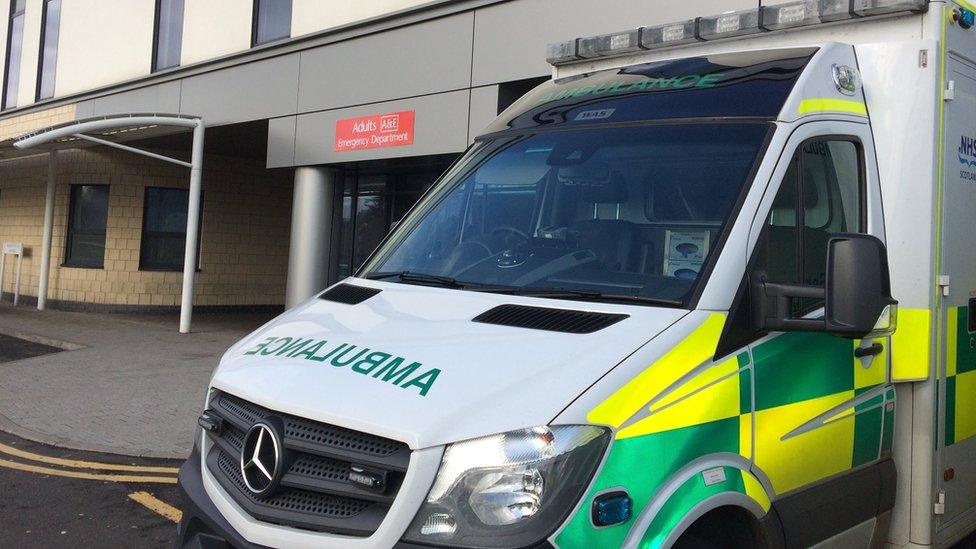Spending on NHS temporary staff in Scotland reaches record high
- Published

Annual spending on NHS temporary staff in Scotland has risen to a record high of more than £560m - a rise of over a third compared with the previous year.
Latest data , externalshows that in the year up to 31 March, £447.4m was spent on bank and agency nursing and midwifery staff.
Another £119.6m was spent on locum doctors and dentists.
The biggest health board, NHS Greater Glasgow and Clyde, spent almost £130m in the past year to cover nursing and midwife shortages.
While the NHS workforce has grown by more than 10% in the last decade, the data shows more people left than joined the service in the past year.
There were 13,946 new staff in 2022/23, but that was offset by 14,089 staff leaving - a difference of 143.
The Royal College of Nursing said more than 4,000 registered nurse posts across Scotland remained vacant at the end of March, equating to 8.5% of posts.
Agency staff used to fill the gaps rose to the equivalent of 1,741 in 2022/23, up from 1,018 in 2021/22.
The nursing trade union said the cost was a "staggering" £169.7m, up 91% from £88.8m the previous year. It said the spend on agency staff two years ago was £39.3m.
The union said overall spend on bank and agency staff combined was up 39% on the previous year, to £447.4m.
'Simply not sustainable'
Eileen Mckenna, RCN Scotland's associate director, said the "thousands" of missing registered nurses was impacting on the safety and quality of patient care.
She said the shortage was "putting even more pressure on staff who are already working extra unpaid hours to cover gaps and going home feeling that they are unable to provide the quality of care they want".
Ms Mckenna added that while some investment in bank and agency nursing would always be needed, it was "not the solution to the workforce crisis", while the huge increase in spending was "simply not sustainable".
"Our members find it shocking that the Scottish government would rather line the pockets of the private sector than invest in building and developing the nursing workforce within the NHS," she said.
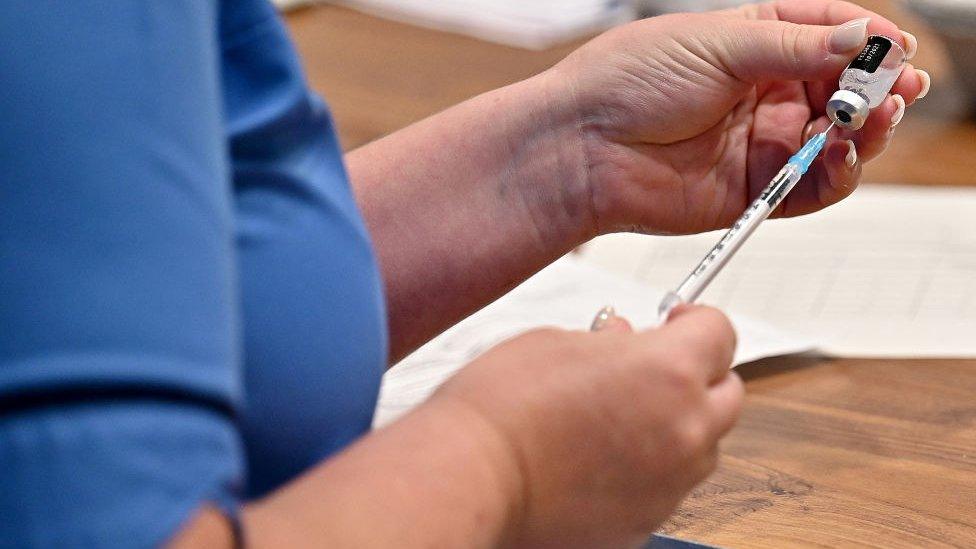
The Scottish government said the data showed the number of additional staff recruited during the pandemic who had left
"This is clear evidence that the new Nursing and Midwifery Taskforce must deliver positive change to address persistently high nursing vacancies."
Ms Mckenna added that the taskforce needed to look at how Scotland could retain experienced nursing staff, develop new routes into the profession and ensure nursing was "a career of choice once again".
The number of nursing and midwifery staff dropped by 0.9% to 64,642, with £277.7m spent on bank staff - who provide basic clinical care to patients - to cover that area.
There was a 1.9% rise in the number of medical and dental staff to 5,913, with nearly £120m spent on agency locums.
The number of allied health professionals, who provide a range of diagnostic, technical, therapeutic and support services, rose by 4.5% to 13,462.
Matt McLaughlin, Unison Scotland's head of health, said: "This report confirms that the NHS is in the midst of a staffing crisis and the increased dependency on agency staff to plug gaps is a massive drain on NHS funds - money that would be better spent treating patients and investing in the workforce.
"Our nursing survey last month showed 94% of nurses have experienced understaffing, with almost three quarters (72%) saying this happened on a daily basis. There is just too few nurses to be able to do the job properly and staff are struggling to provide patients with the care they deserve."
'Every penny is a prisoner'
A Scottish government spokesperson said the workforce was the "most important asset of the NHS" and staffing had grown by more than 17% in the last decade.
The spokesperson highlighted a record number of trainee doctors recruited last year, plus a 55% increase in the number of available medical school places at Scottish universities in the last eight years.
"These annual figures are the first to show additional staff brought in during the pandemic, such as for Test and Protect services and vaccinations, leaving the workforce," the spokesperson added.
"Spending on agency nursing increased during Covid as boards relaxed some controls on temporary staffing to ensure enough staff were available to keep wards, patients and staff safe.
"New controls have now been put in place and we expect to see agency costs coming down."
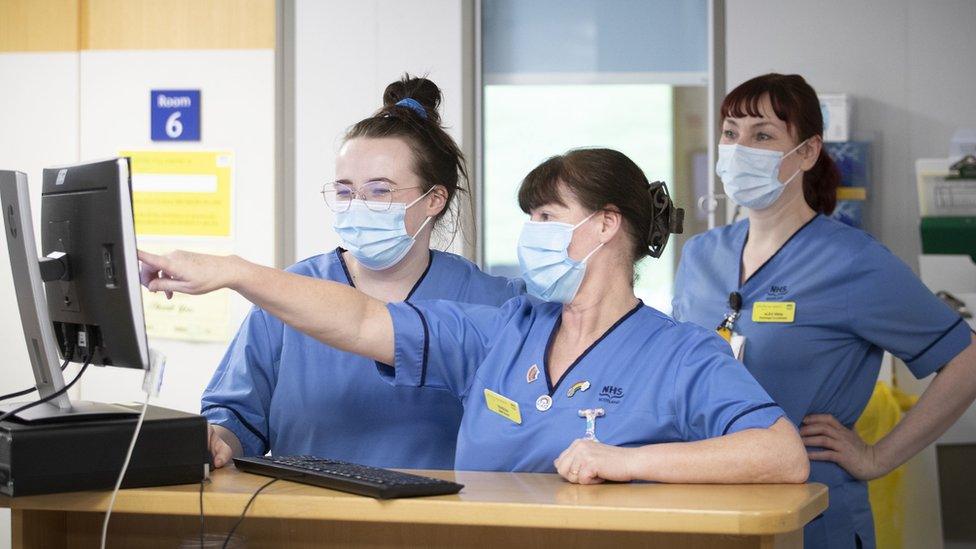
The spokesperson said the government was committed to making the NHS "an attractive place to work", highlighting certain staff are "the best paid anywhere in the UK."
Nurses, midwives and paramedics were among NHS Scotland workers offered a one-off payment and an average salary rise of 6.5% from April this year.
Dr Sandesh Gulhane, the Scottish Conservatives' shadow health secretary, said the "shocking figures" and "seemingly unstoppable rise" in agency staff spending was a "shameful reflection of the nationalists' appalling workforce planning and mismanagement".
Dr Gulhane blamed the dependency on more agency or locum staff on the government's "failure to ensure there are enough permanent frontline staff to properly resource our health service".
"It's the ultimate false economy," he added. "Every penny is a prisoner given the huge demands on the NHS, so we can't afford to spend ever-increasing sums on fees to agencies, in addition to paying the temporary staff they provide.
"Some of this locum spending will have even gone towards permanent staff or retirees begged to take on extra shifts in order to plug the enormous staffing shortfall."
Scottish Labour's health spokeswoman Jackie Baillie said: "It is clear for all to see that a decade and a half of SNP failure has left our NHS facing a perfect storm of falling staffing levels and soaring agency costs.
"From soaring agency bills to lengthening NHS waits, the people of Scotland are now paying the full price of SNP incompetence and useless Humza Yousaf's disastrous track record as health secretary."
Scottish Liberal Democrat leader Alex Cole-Hamilton MSP said: "These astronomical figures expose the yawning gaps within the NHS workforce, putting staff in a desperate situation.
"The complete failure by this SNP-Green government to recruit and retain staff stretches all the way back to Nicola Sturgeon cutting training places and claiming that was 'sensible'."


For years there have been warnings that NHS staff are increasingly stretched and often burnt out - with many experienced doctors and nurses quitting their jobs.
We don't know how many - but some are switching to work "freelance" for the NHS. Temporary staff are in high demand - meaning they can be paid more and can choose their shifts more flexibly.
Being a locum doctor or an agency nurse allows people to continue working for the NHS when they might otherwise have walked away. But it means health boards spend extra on agency fees, and find it harder to cover shifts with regular staff who have the right experience for the wards that need cover.
Recruitment and retainment has been a long-standing issue for health and social care. These soaring costs are another sign that the government needs to come up with an affordable plan to get the NHS back on a sustainable footing.
Related topics
- Published17 February 2023
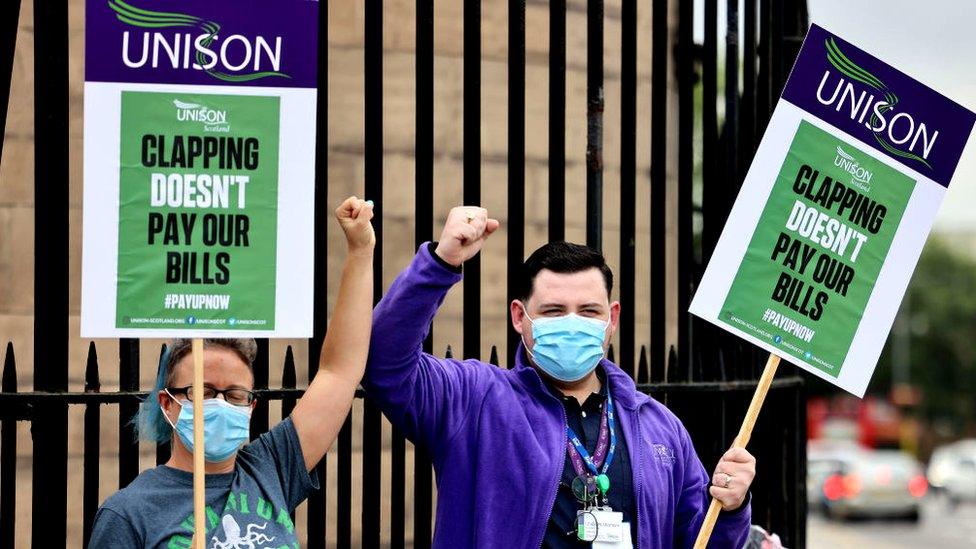
- Published4 October 2022

- Published4 October 2022
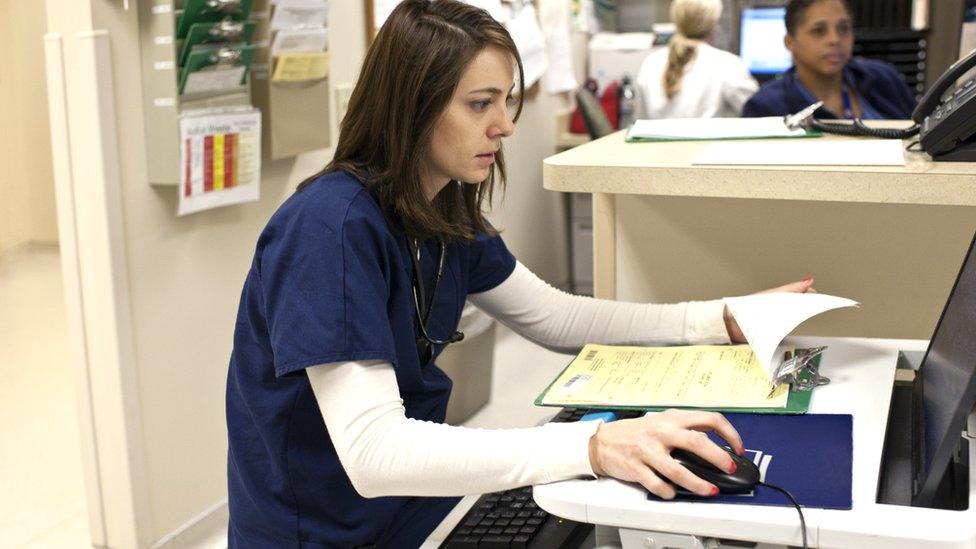
- Published27 September 2022
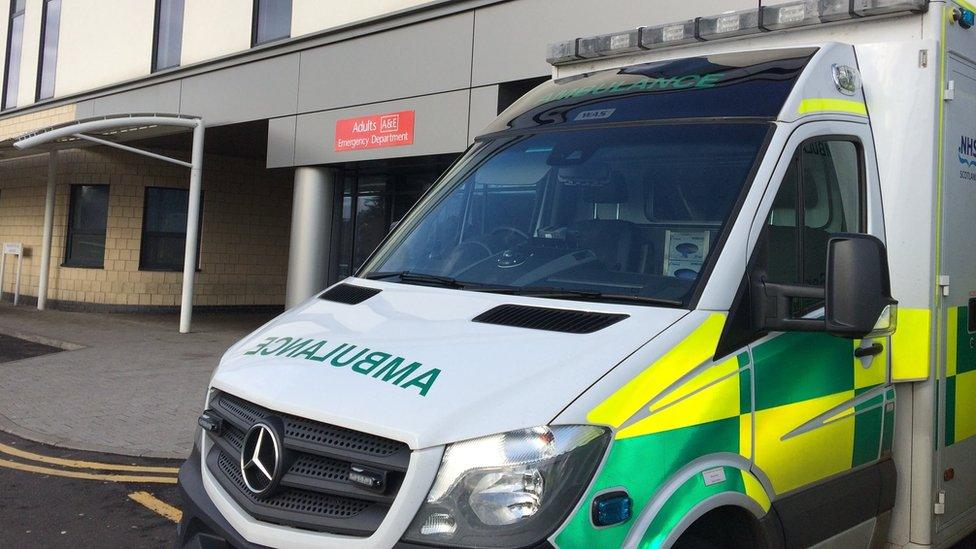
- Published20 September 2022
